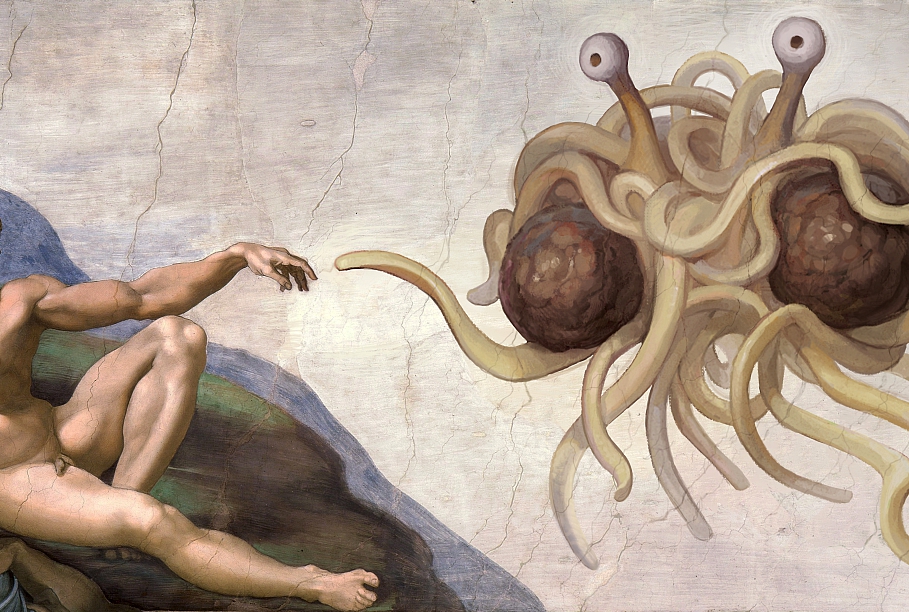The refusal was based on findings by the Justice Ministry, Ombudsman and the Security Police, who were unimpressed by the group's reverence for the durum-wheat based deity which should be boiled, strained and served with generous portions of grated Parmesan.
The Justice Ministry did acknowledge that “Pastafarians worship the Flying Spaghetti Monster as their highest deity” and that the congregation’s activities are aimed at “preaching the gospel of the Flying Spaghetti Monster and turning those who believe into their disciples”.
However the ministry found that the Pastafarians’ objective to “preach the light of meatballs and spaghetti” lacked logical and reasonable substance - despite the fact that it neatly sidesteps the transubstantiation question - and that the intention of the slightly salted religion was not to worship any divine being.
On the other hand the ministry acknowledged that Pastafarianism promoted “critical thinking” by questioning certain values and assumptions.
Though the ministry did not outline preciely which values are subjected to philosophical scrutiny by the parboiled creed, we at LSM would guess that the primacy of Bolognese sauce may be among them, along with opposition to the heretical notion of throwing pasta at the wall to see if it sticks.
The Security Police said in its findings that the Pastafarians could not be considered a proper religious congregation and that its parodying of religious practices and beliefs could insult some people’s religious feelings.
The feelings of those with gluten-intolerant digestive systems were not taken into account, unless such findings were classified as top secret. In any case it is reassuring that the security services are involved in the case, given the possibility of radicalised 'Pastafarianists' preaching gnocchi, polenta and other forms of extremist starch consumption.
Meanwhile, Ombudsman Juris Jansons said it's unclear whether the refusal to register the Riga Congregation of Pastafarians was in line with the Convention for the Protection of Human Rights and Fundamental Freedoms.
Citing rulings of the European Court of Human Rights (ECHR), the ombudsman argued that state authorities are obliged to observe neutrality, promote religious tolerance between religious groups and avoid solutions restricting pluralism.
Pastafarianism is legally recognized as a religion in the Netherlands and New Zealand.
Latvia's position can now be regarded as officially 'anti-pasti'.































